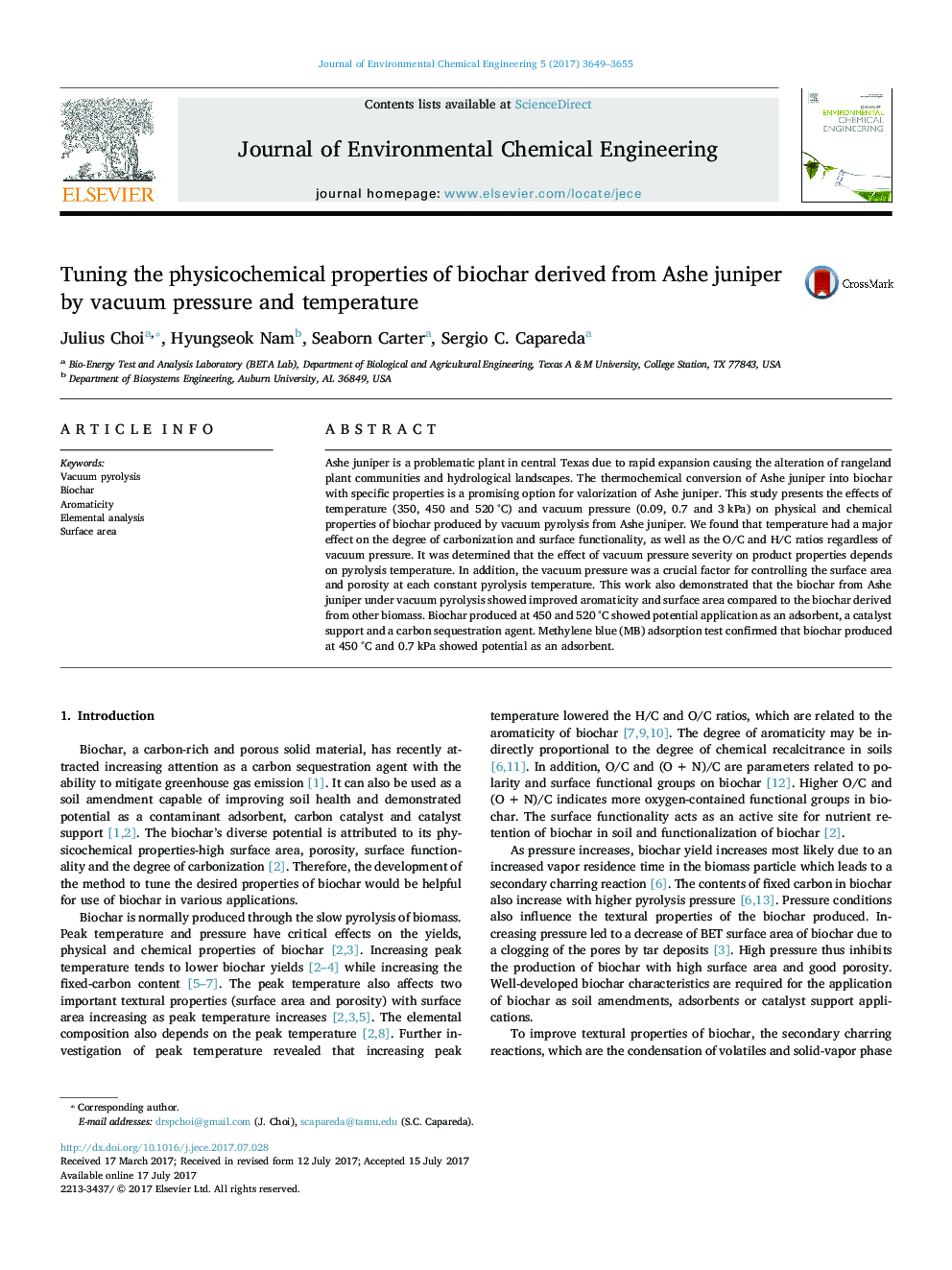| Article ID | Journal | Published Year | Pages | File Type |
|---|---|---|---|---|
| 4908721 | Journal of Environmental Chemical Engineering | 2017 | 7 Pages |
Abstract
Ashe juniper is a problematic plant in central Texas due to rapid expansion causing the alteration of rangeland plant communities and hydrological landscapes. The thermochemical conversion of Ashe juniper into biochar with specific properties is a promising option for valorization of Ashe juniper. This study presents the effects of temperature (350, 450 and 520 °C) and vacuum pressure (0.09, 0.7 and 3 kPa) on physical and chemical properties of biochar produced by vacuum pyrolysis from Ashe juniper. We found that temperature had a major effect on the degree of carbonization and surface functionality, as well as the O/C and H/C ratios regardless of vacuum pressure. It was determined that the effect of vacuum pressure severity on product properties depends on pyrolysis temperature. In addition, the vacuum pressure was a crucial factor for controlling the surface area and porosity at each constant pyrolysis temperature. This work also demonstrated that the biochar from Ashe juniper under vacuum pyrolysis showed improved aromaticity and surface area compared to the biochar derived from other biomass. Biochar produced at 450 and 520 °C showed potential application as an adsorbent, a catalyst support and a carbon sequestration agent. Methylene blue (MB) adsorption test confirmed that biochar produced at 450 °C and 0.7 kPa showed potential as an adsorbent.
Related Topics
Physical Sciences and Engineering
Chemical Engineering
Chemical Engineering (General)
Authors
Julius Choi, Hyungseok Nam, Seaborn Carter, Sergio C. Capareda,
